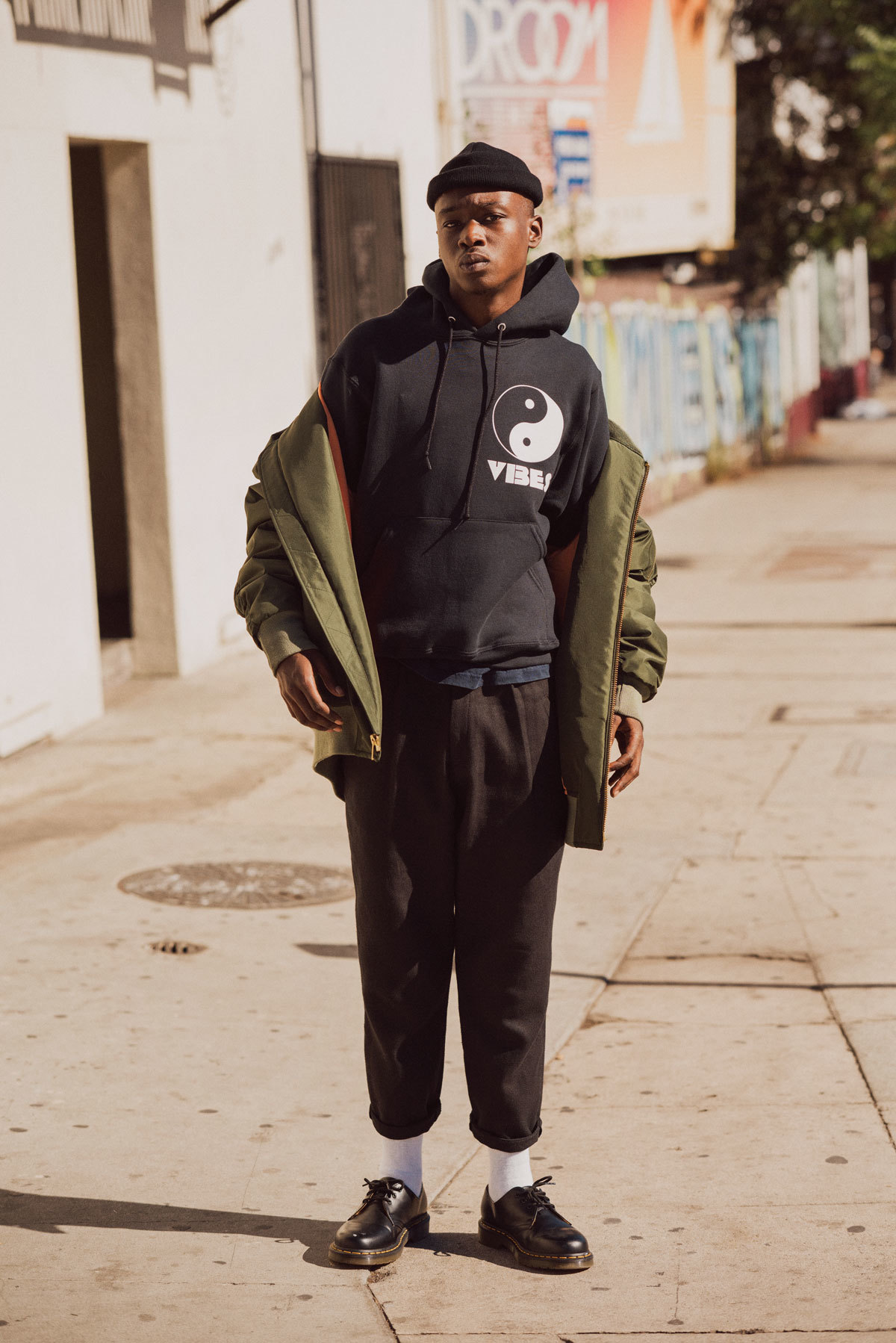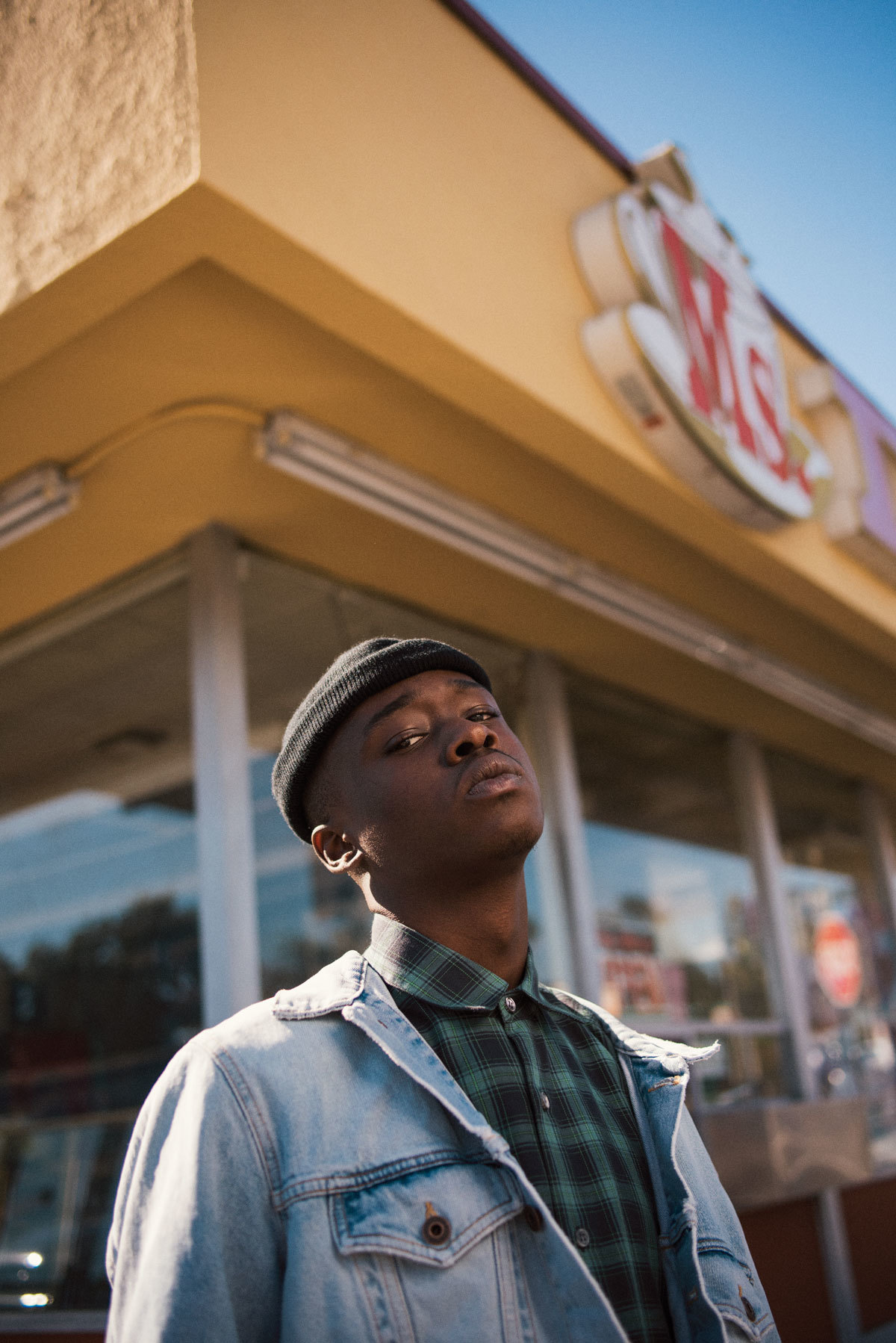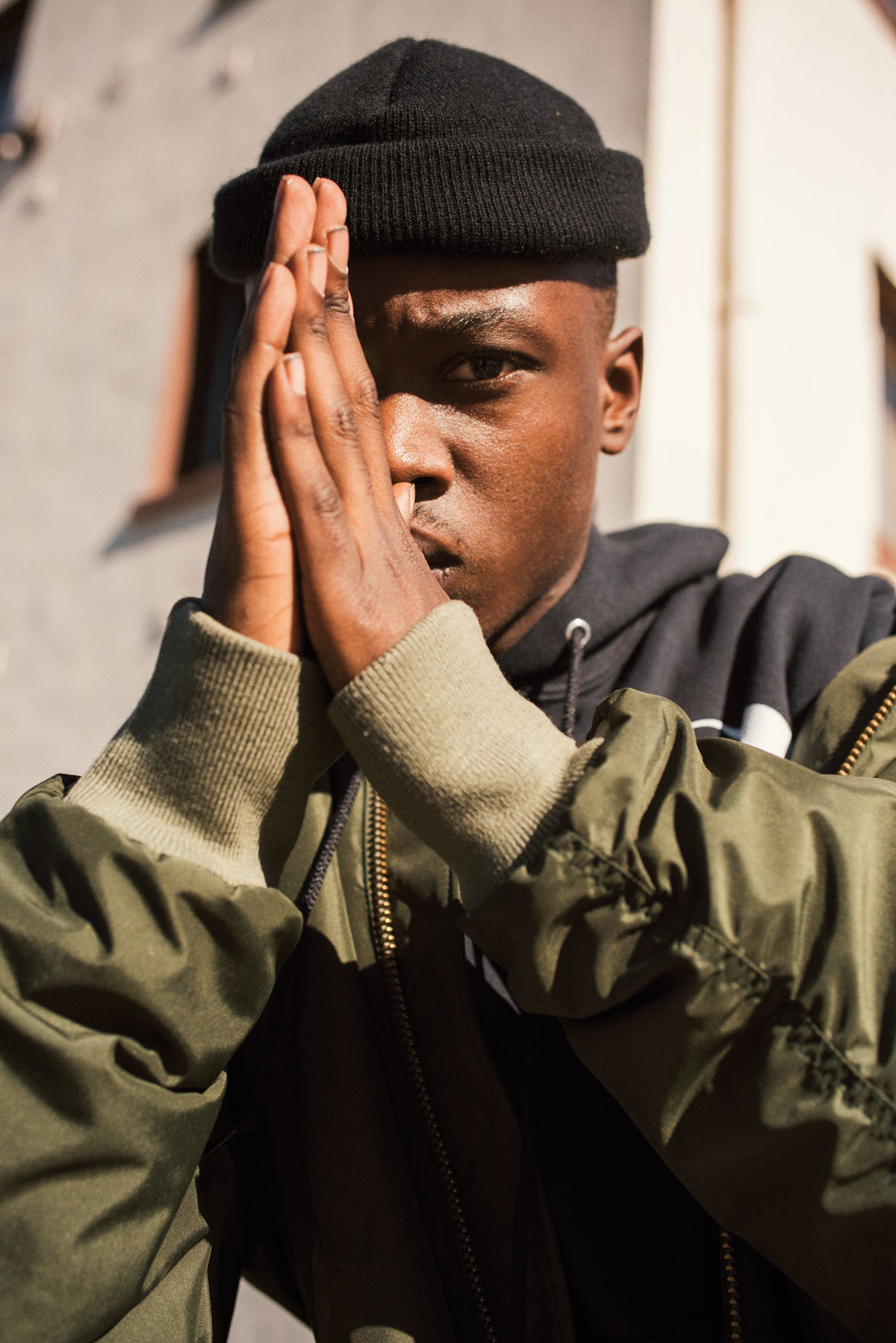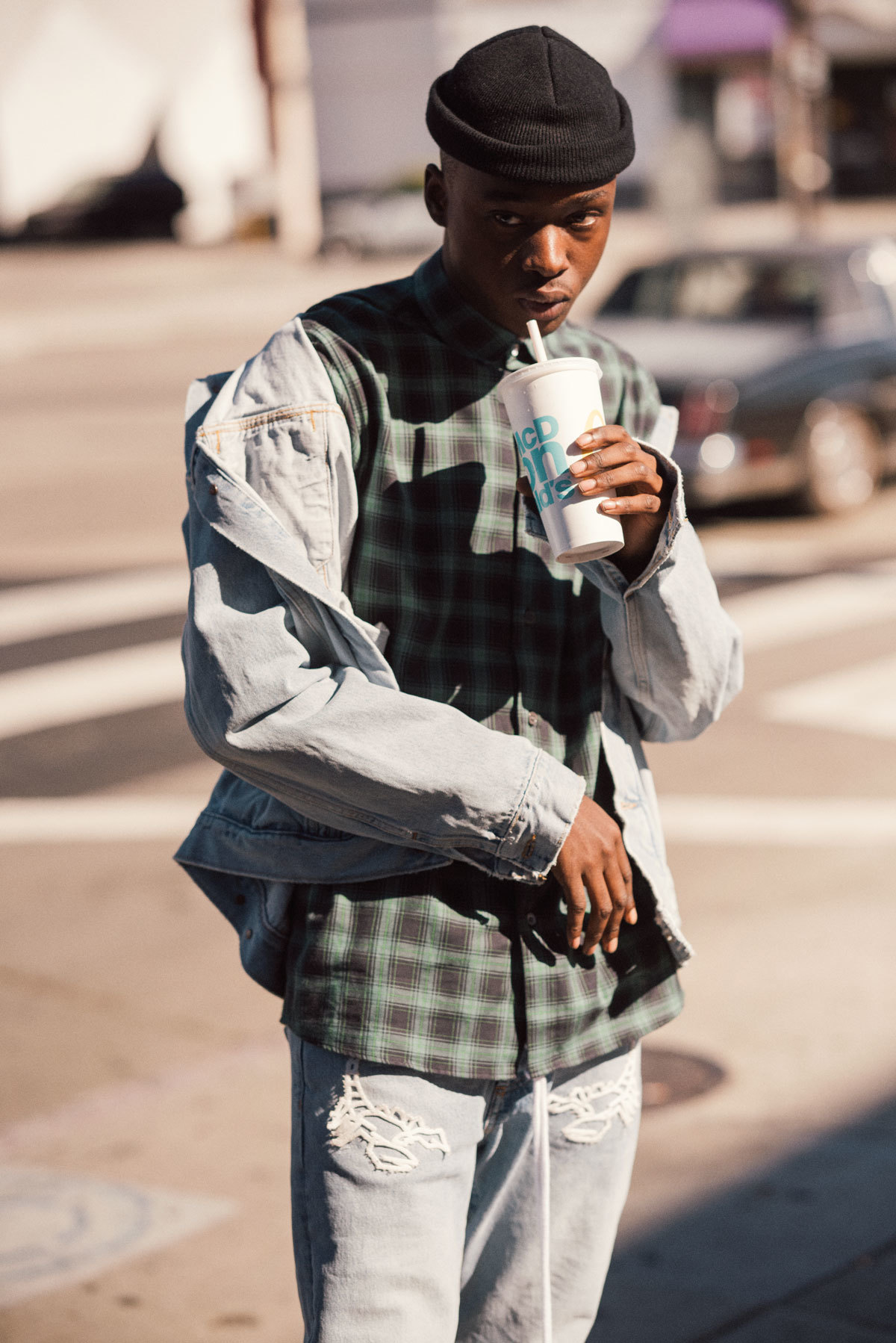Ashton Sanders is discussing the multitude of masks all black men wear at some point in their lives. “People often want black men, and black people in general, to dim their light,” the newly 21-year-old actor states. “But I can’t apologize for my blackness. This is who I am.” Identity is something that’s been on the young L.A. native’s mind recently. As the star of Moonlight — the universally acclaimed, Barry Jenkins-directed breakout film of the year — he’s gone from being a student at DePaul University’s theatre program in Chicago to a potential runner in this year’s Oscar race in just a matter of months. Where did it all go so right?
“Man, I think people were just really ready to see something real,” he says, drawing out that last word as if he’s still taking stock of his new surroundings. “I think we did a pretty good job with it. Other than that, I couldn’t tell you because it’s all been pretty surreal for me as well!”
Moonlight is, to put it simply, the kind of movie that you very rarely see. As Ashton says, it is a brilliant and intelligent portrayal of both the contemporary black and gay experience, but also the intersectionality of those two things — a topic that has, as he puts it, “been swept under the rug for far too long.”

Similar in scale and ambition to Richard Linklater’s 2014 coming of age drama Boyhood (Ashton is one of three actors in Moonlight to play the central role), it is the story of outsider Chiron and the experiences that make and occasionally unmake him. Bookended by bravura performances from Alex Hibbert as nine-year-old Chiron, and Trevante Rhodes as his adult self, Ashton is the film’s teenage core: bullied at school, resented at home, and aided by a series of incredible turns from Mahershala Ali, Janelle Monáe, and British actress Naomie Harris as his drug-addicted, single mother. “The story was one of the most emotional reads I’ve ever had,” Ashton says, of the moment he received the script, which is based on the play In Moonlight Black Boys Look Blue by MacArthur grant-winning playwright Tarell Alvin McCraney. “It’s very rare that you connect with something just by reading it, but with Moonlight the imagery was popping off of the page. In that moment my soul connected to the character.”
There were reasons, he will tell you, that the connection felt deeper than previous roles (among them: 2013’s The Retrieval, a cameo in N.W.A biopic Straight Outta Compton, and a part in Jessie Kahnweiler-helmed web series The Skinny). “I grew up in Los Angeles in a hood, a suburb. I grew up being bullied. I grew up with family, close family, dealing with drug addiction. So Moonlight became super therapeutic to me actually, while filming. It was very much a passion project for me.”

Ashton uses the word “therapy” a lot during our interview and — while you suspect a little of that comes from time spent with the Amazing Grace Conservatory in Los Angeles (a community-based youth program that encourages self-discovery through drama) — you get a sense that, although he himself is straight, he’s no stranger to the same issues of masculinity that dog teenage Chiron. “I was that skinny black boy growing up,” he explains. “I didn’t play sports, so people would categorize me and tease me. I was the weirdo. I was going through a lot of shit when I was younger. I wasn’t the average, stereotypical black boy.”
One only has to look at the alleged comments made by actor Nate Parker while promoting his 2014 movie Beyond the Lights — he reportedly said he would not play a gay character in order to “preserve the black man” — to see that regressive views on black masculinity are still alarmingly prevalent within Hollywood. With that in mind, was Ashton at all hesitant to take the role? “There were definitely hesitations,” he admits, although not towards playing a homosexual character. “Like I said before, these are topics that run deep within me. I had to tap into memories that I had hidden, that I wanted to forget about, growing up. I had to tap into those experiences in order to really get into this character’s soul. I knew that I was going to have to do that. But then again, like I said, man, this script. My intuition was calling me to do this film.”

Jacket Brashy. Hoodie Assembly.
Be it intuition or timing, there’s something pertinent about a film with no white characters being released during a critical period for black rights in the United States. Although Moonlight is not related to police brutality in a direct sense, Ashton believes it does connect in the way that a person’s upbringing can perpetuate certain stereotypes. “Chiron was raised in the hood, in the ghetto,” he says, his voice breaking with emotion. “With all his experiences, he could just as easily be walking angrily to the store like Michael Brown. Or he could be walking down the street like Trayvon Martin, having a bad day. He could be being bullied at school and someone stereotypes him and he gets shot. I feel like it’s definitely relatable.”
In what way does he hope moviegoers relate to the film? “I want people to walk away from the theatre feeling empathetic and full of love,” Ashton concludes. “This is the type of film that makes you want to go home to your kids and tell them that you love them. And honestly? As an artist — and this film is definitely a piece of art — if it makes you react in a certain way, we did our job. Whether it’s negative or positive, we did our job. I think Moonlight is going to change people’s lives forever.” For Ashton, you get the impression it already has.
Credits
Photography Todd Cole
Styling Turner
Grooming Sandy Ganzer at Forward Artists using Malin + Goetz.
Photography assistance Mike Lopez.
Styling assistance Angelina Vitto, Nikki Patrija.
